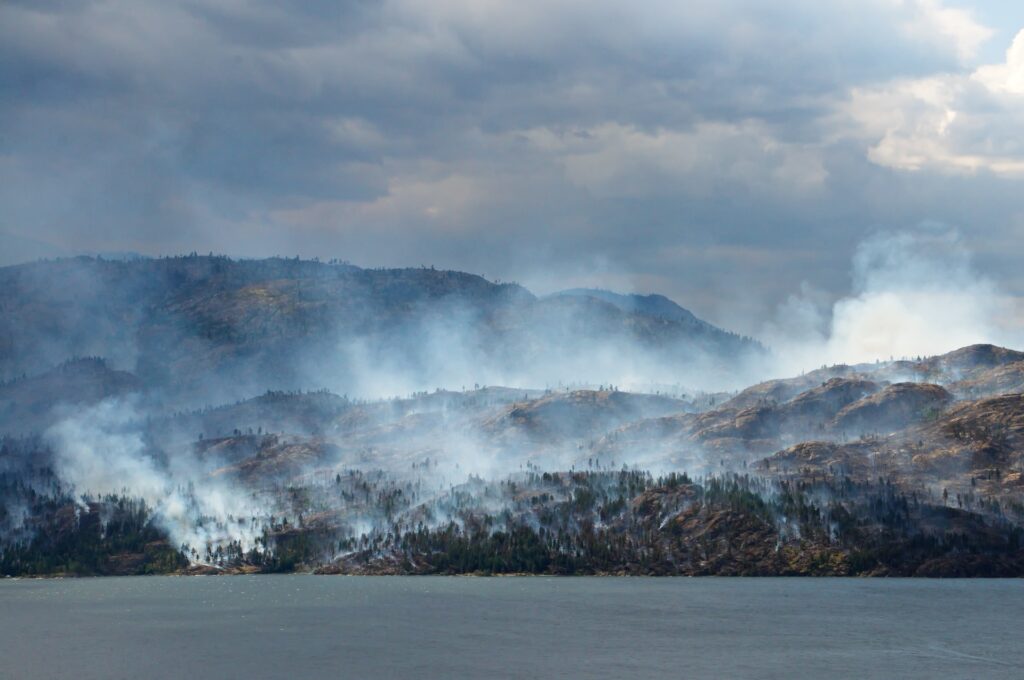Wow, what a week.
As many of you know, Congress has been trying to pass the biggest climate bill in our country’s history.
And last weekend, Senator Joe Manchin from West Virginia, who makes ~$500,000 per year from his coal company, finally said he wouldn’t vote for the bill.
On Saturday morning when I awoke to this news, I found myself wallowing in a familiar state of despair. I wondered, as a I have many times, if Congress will ever pass a meaningful climate bill.
For the next hour, I spiraled.
I thought of the apocalyptic world that awaits us, the horrible natural disasters, geopolitical unrest, and all the climate risk we don’t even know about. And then I thought, “What’s the point of doing anything at all?”
Needless to say, I was in a bad place.
My wife was out of town so I texted her the news with a sarcastic, “Let’s enjoy this planet for the last few decades that it’s habitable.”
She responded, “Let’s do something about it!”
Something is better than nothing
There’s not much any of us can do to convince Senator Manchin to ditch his coal stocks and join the good fight. But there’s a lot we can do. And in order to do it we have to overcome despair.
Fortunately there’s a lot of evidence to suggest that the rewards of overcoming such despair are pretty great.
Thanks to the countless people who have chosen action over despair, 100 million people currently live in a city or state with an official 100% renewable electricity target.
Thanks to these folks, if the cities, states, and companies in America that have pledged to reach net-zero emissions by 2050 were a country, they’d make up the third largest economy in the world.
All of this needs to happen faster. But there’s no doubt we’re making progress. And that’s because everyday countless people in this movement show up despite the bad news and move us a little bit closer to the goal.
And given the choice between wallowing in despair, like I did on Saturday morning, or doing something, like my wife suggested, which would you prefer? Which do you think is better for your mental health? Which do you think our communities and planet need?
One of my friends fled Afghanistan a few years ago as a refugee. One night after a suicide bomber killed 100 people in his hometown I met him for dinner. As we waited for our food he laughed and told jokes as if it were just another day.
I asked him how he remains positive and optimistic in a world with so much suffering. He looked at me, almost confused. “What’s the alternative?”
A few minutes later our food arrived. It was exactly the opposite of what we ordered and looked unappetizing to say the least. He looked up at me, laughed, and then said a phrase I’ve heard him say dozens of times.
“Something is better than nothing!”
The something you can do
To end this newsletter, here are 5 things that you start doing today that will have real impact:
- Find a climate friend — Doing stuff with other people is way better than doing it alone. So text a friend, or two, or a dozen, and organize a “climate action date.” Go to a coffee shop or park and make a plan to do something, anything. Then hold each other accountable and have fun doing it together.
- Join a climate community — Even better, join an existing community of doers. Lately my wife and I have been volunteering with Climate Changemakers. We love it!
- Electrify everything and then talk about it — Recently I found Andrew Gibson’s Twitter account, where he’s tweeting his electrification journey. Not only is Andrew doing the good work of electrifying everything. He’s talking about it! Which makes me think…
- Talk about climate change — According to climate scientist, Katherine Hayhoe, the single most important thing we can all do is talk about climate change more. So give that TED talk a watch and then start talking!
- Install some LEDs — Replacing your HVAC and water heater with heat pumps is the most impactful thing you can do to reduce your home emissions. But it’s expensive and it takes a while. So start with some low hanging fruit, and swap out all your bulbs with LEDs. It’ll save you money and cut a few tons of carbon over their lifespan. And then… you guessed it, talk about it!
Let me know if you end up doing any of these things or if you have any recommendations on what I can recommend in future newsletters.
And, as always, if you made it this far, thanks for reading!
